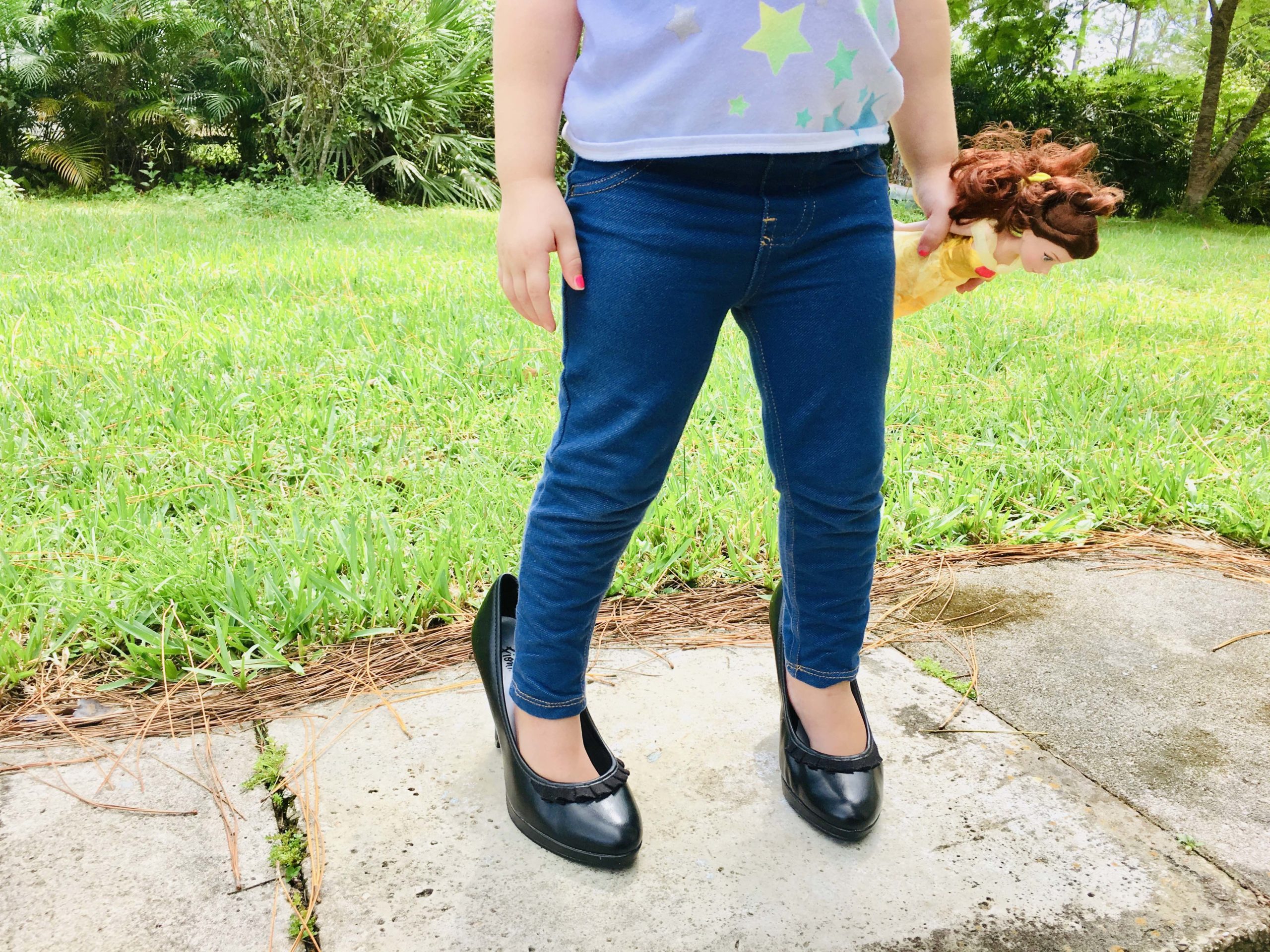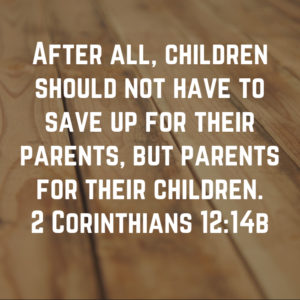The Parentified Child

Have you ever noticed a young child who seemed incredibly mature for her age? Maybe it was her natural ability to communicate well and navigate comfortably within the world of adults. Maybe it was her knowledge of cooking and cleaning; maybe you saw the way she embraced a “mommy-like” care-taking role with her siblings all while at the age of 7! Though many may celebrate and praise a young child’s sense of responsibility, these could potentially be red flags for a parentified child.
What is parentification? By definition, it is when a child literally reverses roles with their parent; a parentified child will become the caretaker or “parent” of their parent. This often happens in families battling divorce, mental illness, or addiction. What separates this from general maturity and responsibility is that the parent is not fulfilling their own role as a parent; but rather are looking to a child to meet their adult needs. While many parents may be well-meaning, significant research has shown that placing a child in the role of confidante, best friend or secret-keeper can have long-term psychological consequences.
Types of Parentification
When it comes to Parentification, there are generally two different types. One type of Parentification is when a child assumes an instrumental or physical care-taking role. A parent suffering from severe depression or alcoholism may be incapable of taking care of the home, the siblings, or meal preparation. While it is good to teach responsibility and work ethic, instrumental parentification is not the same. Instead, it involves the child taking on the anxiety of adulthood in order to relieve the parent. They frequently spend their time and concern cooking, cleaning, sometimes ensuring their own parent has been eating, or even becoming a surrogate parent to their siblings. This is unhealthy because it neglects the very real need that a kid has to just be a kid, unburdened by real world pressures until they are developmentally ready to handle it.
Another type of parentification is when a parent seeks to have their social and emotional needs met through their child. This happens most often when a mother is feeling emotionally disconnected from her husband (or is going through a divorce), and looks to her child to fill that emotional deficit as a best friend or even a sort of surrogate spouse. In this case, the child then serves as an emotional confidante, secret-keeper, and friend with whom mom “hangs out” and vents her wounds and frustrations to. The child may even feel pressure to take sides or play mediator as mom overshares her adult problems… “Your dad never pays child support on time.” This is often the most destructive form of parentification because every child will naturally want to please their mother; but the pressure they often feel to make mom happy tends to come at the expense of suppressing their own needs, such as the need to play and form their own friendships with peers their own age. When the child then begins to feel personally responsible for mom’s happiness and emotional well-being, innocence is lost in the exploitation of that child. Most psychologists agree that emotional parentification is a form of emotional abuse.
Problems in Adulthood
In a study published in the Journal of Family Therapy, researchers found that people who experienced childhood parentification are at an increased risk for anxiety, depression, anger, shame and substance abuse as an adult. This may be due in part to the fact that a child enters life looking to their parents for security, protection, guidance, and to generally help them make sense of their world. When a parent inverts their role and begins to look instead to the child for advice and support, this is not only confusing to the child, but unsettling and scary. Then the natural inclination a child has to make their parents happy can trigger the neglect of their own very real emotional and tangible needs. But the neglect of those needs could potentially result in the construction of a false belief system dictating that their needs are not as important; which could carry on into adulthood with consequential inner struggles in shame and false guilt for even having needs and desires. Many adults who were parentified as children also battle chronic lifelong anxiety because their young, undeveloped brains were flooded with stress hormones from taking on responsibilities and roles they weren’t yet prepared to mentally or emotionally handle. Depression and loss with accompanying resentment are also common as they often feel like they were “robbed” of their childhood in considering all they missed out on due to their adultified role in childhood. I see this frequently in the therapeutic setting where clients battle anger and bitterness toward their parents for putting the stresses of their own needs on them. Common feelings I hear are: “I feel so angry because I just wanted to play, hang out with my friends and be a kid; but instead I had to stay home and take care of my brother….” or “mom would always complain about how we never had any money for anything, so I would stay awake all night worrying about how I could ask dad to pay his child support on time…” or “I hated my dad my entire childhood because my mom told me about his affairs and how mean he was to her so I felt like I had to protect her from him.” Many also turn to unhealthy coping, such as substance abuse, in order to deal with the raging internal onslaught of depression, anxiety and anger.
In a healthy family system, the parents should exist at the top of the hierarchy. A parent’s goal is to provide their child with learning opportunities as they grow, protecting them and shielding them from the full brunt of reality until they are developmentally ready to handle it. This includes protecting them from the anxiety of physical care-taking as well as avoiding overburdening a child with adult problems and needs. While certain chores and responsibilities are necessary for a child’s growth and learning, there must be a healthy balance with playful fun and socialization with peers of the same age.
If you are a parent that is going through a difficult time, I strongly recommend and encourage you to get your needs met through other adult relationships and friendships, or seek professional help if you need support. Your needs are very legitimate, valid and real. But please do not place those burdens on your child. Not only can that lead to psychological distress as they grow, but it could also lead them to feelings of bitterness and resentment toward you for placing them in the middle and/or stealing the innocence of childhood from them. If you are an adult child now wrestling with the wounds of parentification as a child, please know there is hope. You have experienced a real loss that actually requires a legitimate grieving process. It is ok to grieve your lost childhood and you may cycle through a mixture of sadness and anger. It might be helpful to journal or talk with others about what you missed out on, what you remember you could not do as a result of your care-taking role. Many people even find it healing to do childlike things as an adult. Go sit on the swings at the playground down the road. Grab an icee pop and dance in the rain. Plan that trip to Disney. The difficult and painful thing about life is that you cannot go back. But you can go forward. You can find the innocent child once lost within you; you can reclaim it, and you can take back your life.


